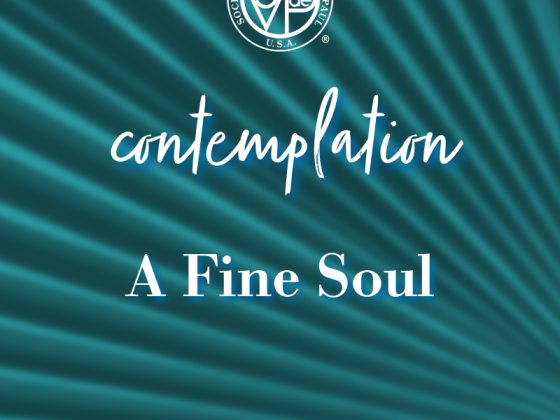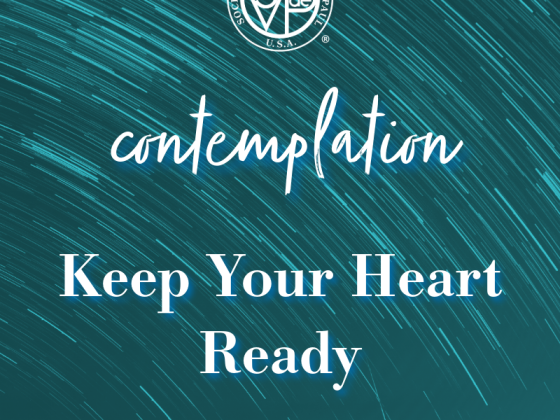To offer the benefit of the doubt is to assume the best of somebody even when you are uncertain of the truth. Is this not what we are called to do in our encounters with the neighbor?
Thomas, we are told in John’s gospel, would not believe Christ had risen until he had first seen the wounds for himself. To be clear, it wasn’t Christ’s word he was doubting. Quite the contrary, he was insisting that he only would trust Christ, and not his friends, who had already testified to the resurrection. Their words were not good enough for Thomas without tangible proof to back them up. If St. Thomas the Apostle struggled to trust in the word of the other ten closest followers of Jesus, how can we hope to trust in the word of a neighbor whom we have only just met?
Perhaps, like Thomas, we can find ourselves assured not by Christ’s words, but by His wounds. “In the poor,” our Rule reminds us, “[we] see the suffering Christ.” [Rule Part I, 1.8] Not the risen Christ in all His heavenly glory; not Christ the evangelizer and servant; not Christ the performer of miracles. No, we are called to see the suffering Christ, the broken Christ, the Christ who felt abandoned, alone on the cross.
As Blessed Frédéric put it, when we look at the poor, we can, like Thomas, “put finger and hand in their wounds and the scars of the crown of thorns are visible on their foreheads; and … we should fall at their feet and say with the Apostle, ‘Tu est Dominus et Deus meus.’ You are our masters, and we will be your servants. You are for us the sacred images of that God whom we do not see, and not knowing how to love Him otherwise shall we not love Him in your persons?” [137, to Janmot, 1836]
The poor will rarely share with us their “whole story”, at least not before we have formed “relationships based on trust and friendship.” [Rule, Part I, 1.9] Instead, they offer us their needs, much like Christ suffering on the cross, who Saint Louise points out “does not address His Father. He does not ask for something to drink. He simply cries out, ‘I thirst.’” [SWLM, A.21]
We can never really know the neighbor’s “whole story”, so at some point, we have to extend the benefit of the doubt; at some point we have to offer the same trust that we ask for in return. We are called to judge the need, not to determine what kind of person we are serving. We are called to serve for love alone. And that love, as St. Vincent teaches, means that “We do not believe a man because he is very learned but because we consider him good and love him.” [CCD I:276]
For Thomas, all doubt was removed at the sight of Christ’s wounds. If our love leads us to see Christ’s wounds in the suffering poor, we will be better able to respond as St. Louise calls us to do: “Listen to Him, O my soul, as if He were speaking to you alone, ‘I thirst for your faithful love.’” [SWLM, A.21]
Contemplate
Are there times I let my doubts overcome my mercy and compassion?




I needed this – I made a call yesterday to a FIN and after reading this – I can lead with my compassion and love.
Thank you